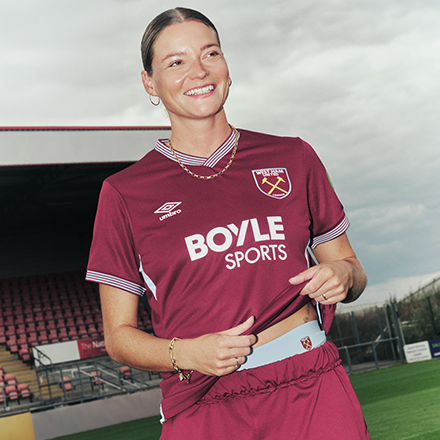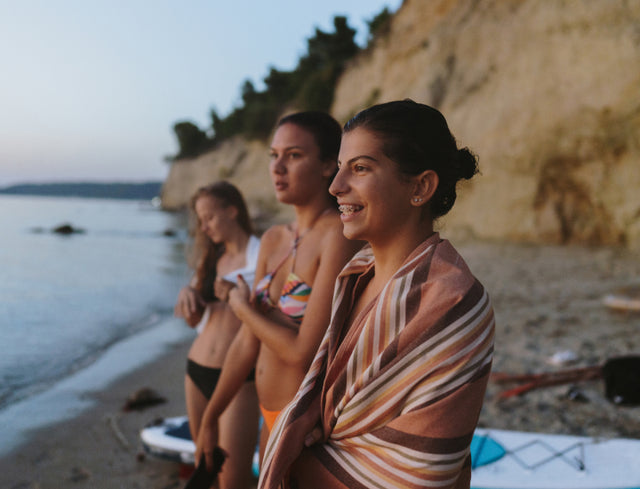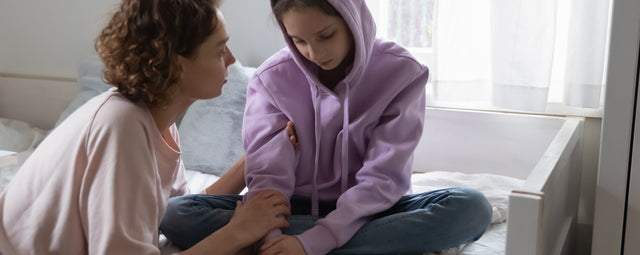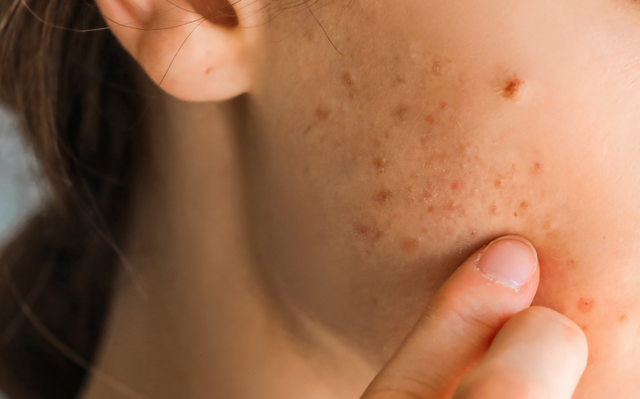Menstrual cycles can be an emotionally sensitive time for some, for others their cycle brings discomfort and heaviness and then there’s comedian Zoe Sitas. A long-time sufferer of endometriosis, Zoe’s diagnosis was only the start of their journey with this complex health condition.
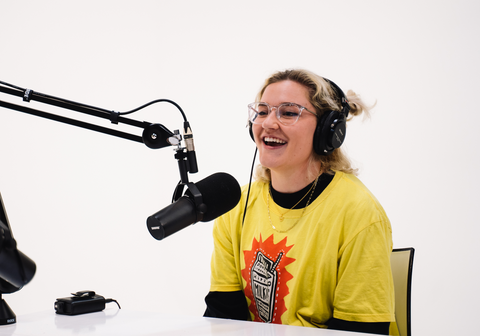
I’d never even heard of endometriosis before I was diagnosed.
I got my first period when I was 15, and to be honest, it was a pretty awful experience. I had a lot of pain, a lot of nausea, I just fell so ill…and I figured that’s what a normal period was. I thought everyone was in that kind of pain.
By the time I was about 19, my periods were becoming worse in terms of pain, flow and IBS symptoms. The pain was really interfering with my life, and I went to three different GPs before anyone took me seriously.
The first GP I saw basically said ‘all women get their periods and are in pain’ and told me to take Panadol and Nurofen. I then tried a different medication which works really well to reduce flow, but which exacerbated my asthma (which is quite rare).
By the time I saw my third GP I was experiencing lower abdominal pain outside of my period. I explained the things I’d tried, the medications I’d taken, the fact nothing was working and the extreme pain I was in with each period, and this time, the GP said it sounded familiar. It turns out, she was an endometriosis sufferer too and that it’s actually pretty common – 1 in 10 women – which is wild.
What is endometriosis?
Firstly, endometriosis is an inflammatory condition, not an auto-immune condition. What happens, is that tissue that’s similar to the lining of the uterus grows outside the uterus. It can grow throughout your body, and in my case, it grows throughout my abdomen and in the Pouch of Douglas, which is this small area between the uterus and the rectum.
Seeing a specialist
After the third GP referred me to a gynaecologist, I didn’t love her vibe, and felt she didn’t take the time to answer my questions, so I went to see a different gynaecologist instead. He was a male and I initially thought ‘what the heck, why would a man be a gynae’ but he was great. He gave me several options – the pill, the Mirena IUD, hormonal suppression therapy which basically puts you into menopause for a period of time to see if it slows the growth – or excision surgery.

Which endometriosis treatment is best?
We had a long chat about it and agreed that since I’d previously been on the pill and suffered depressive symptoms, we’d rule that out. Then we considered the IUD which would help with heavy periods and endo pain, but which wouldn’t actually stop the growth of endo outside the uterus, so that was a no. The only definitive way to diagnose endometriosis is with surgery, so that was another factor in me deciding to go for excision surgery, which is generally considered the gold standard for treating endo.
Excision surgery for endometriosis
The actual surgery is done laparoscopically – also known as keyhole – which is where they put a camera through your belly button and make three small incisions on your belly, then they go in with tiny scopes and cut the endometriotic tissue out.
I chose surgery followed by the Mirena IUD. I won’t lie the experience was very painful, but I have underlying chronic pain which impacts my pain response, and not everyone who has endo has this.
During my surgery, my endometriosis was diagnosed as stage 3, which was worse than what they’d expected given my age and symptoms, but I’ve learned one of the things about endo is that everyone’s experience is so different – you can have stage 1 endo with extreme pain, or stage 4 endo with no pain at all.
Where to get information more info about endo
I’m quite vocal about my diagnosis, and treatment, because I believe that knowledge is power, but it needs to be backed by science. When I first put my symptoms into google I was like “oh no, I have ovarian cancer”, and then when you find support groups you go down a bit of a rabbit hole and end up thinking ‘this is going to ruin my life’ – but it doesn’t have to.
There is actually some useful info on endo on platforms like TikTok, but you have to think of it like you would if you were writing an essay at school – you need to cross-reference your sources and check for evidence to back up what’s being said – just like not getting all your info from Wikipedia! There are plenty of people online saying ‘change your diet to kill your endo’ or ‘don’t eat gluten and you’ll be fine’ and it’s irresponsible, so do your homework, do your research, and find a medical professional you trust and who’s willing to invest the time to put the pieces of the puzzle together.
By talking to others about my experience with endo, my disease doesn’t own me – I own it. It’s nothing to be ashamed of. I can say to my friends, ‘I’m having a bad pain day, do you want to come over and hang out rather than going out’ and they’ll understand. I think talking about things normalises them.
I also think it’s incredibly important to be selective about the doctors and medical professionals you interact with.
I’d advise young people especially to keep looking until you find a GP you can trust. You should be able to tell your GP anything and not feel judged – it’s just so important.
It’s also important to back yourself 110%. You know your body best and if there’s something wrong, no one knows better than you, so you need to find someone who’s willing to listen to you.

What advice would you give to your younger self?
The number one thing would be to find a great GP, and a good psychologist if you need one. Shop around a bit and remember you know your body the best. Also remember that pain isn’t normal, if it’s interfering with your everyday activities, don’t let people tell you to ignore it and ‘just get on with it’. Go get help instead.
For more information, the following links are a good place to start, and remember, always talk to your (good) GP if things don’t feel right, or you have questions.
My period: what’s normal?
Endometriosis Fact Sheet
